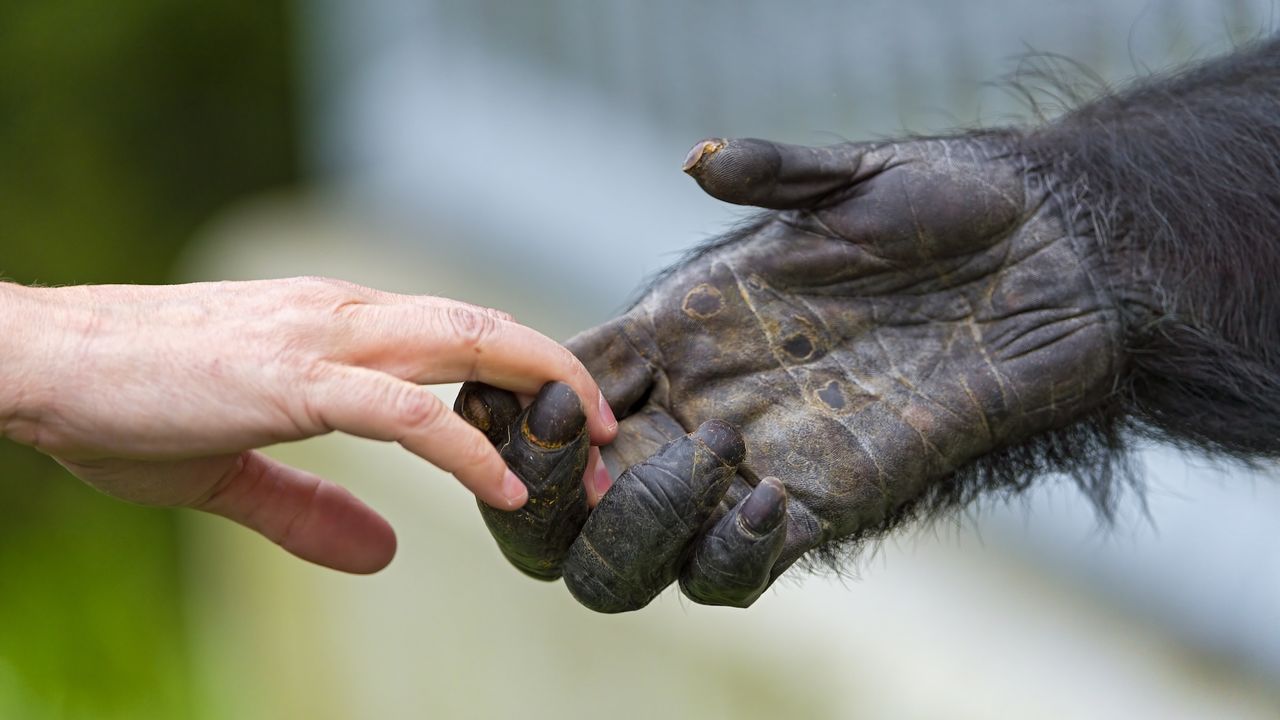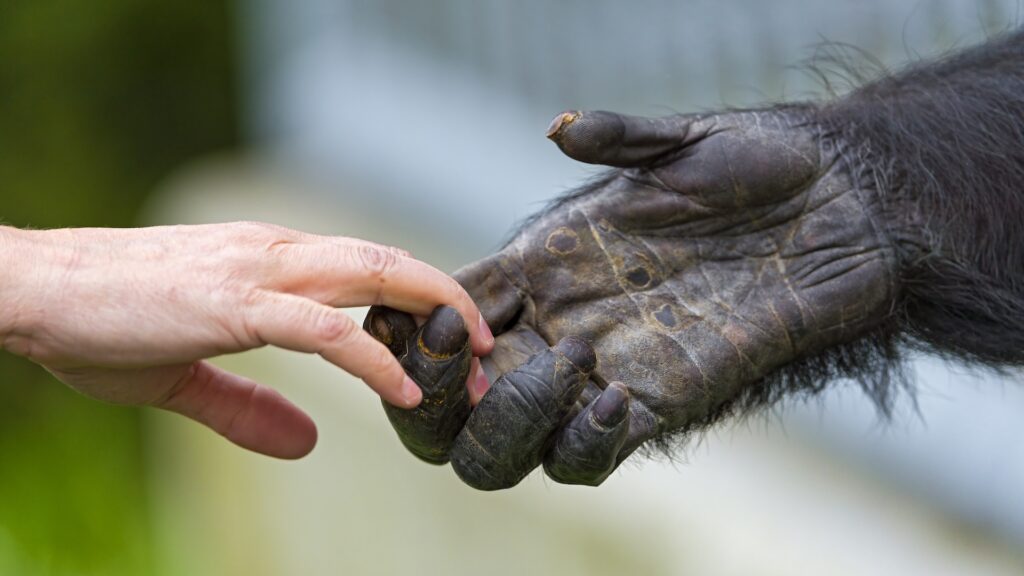
Chimpanzees, along with bonobos, are humans’ closest living relatives. In fact, you may have heard that humans and chimps share 98.8% of their DNA.
But is this actually true? And what does “similar DNA” actually mean?
The truth is that the frequently cited 98.8% similarity between chimp (Pan troglodytes) and human (Homo sapiens) DNA overlooks key differences in the species’ genomes, experts told Live Science.
Human and chimp DNA is made of four basic building blocks, or nucleotides: adenine (A), guanine (G), cytosine (C) and thymine (T). The genomes of both species can be thought of as a “string of the letters A, C, G and T … about 3 billion letters long,” David Haussler, scientific director at the UC Santa Cruz Genomics Institute, told Live Science in an email.
When scientists compare human and chimp DNA, they identify the letter (nucleotide) sequence in both genomes and look for stretches of DNA where there is a lot of overlap between the two genomes. Then, they count the number of matching letters in these regions.
“It is like comparing one version of a very long novel to another, very slightly edited version,” Haussler said.
Related: Are you genetically more similar to your mom or your dad?
Early research suggested that human and chimp genomes are more than 98% identical. “What it means is that for each part of the human genome where the chimp has a corresponding DNA sequence, on average 1 out of 100 nucleotides (single A, C, T or G bases) is different,” explained Katie Pollard, director of the Gladstone Institute of Data Science and Biotechnology at the University of California, San Francisco.
For context, humans share about 99.9% of their DNA with each other, Haussler said.
But the 99% figure is misleading because it focuses on stretches of DNA where the human and chimp genomes can be directly aligned and ignores sections of the genomes that are difficult to compare, Tomas Marques-Bonet, head of the Comparative Genomics group at the Institute of Evolutionary Biology (CSIC/UPF) in Barcelona, Spain, told Live Science in an email.
Sections of human DNA without a clear counterpart in chimp DNA make up approximately 15% to 20% of the genome, Marques-Bonet said. For example, some bits of DNA are present in one species but missing in the other; these are known as “insertions and deletions.” In the course of evolution from a common ancestor, some pieces of DNA in one species broke off and reattached elsewhere along the chromosome.
So, while earlier studies suggested a 98% to 99% similarity, comparisons that include harder-to-align regions push that difference closer to 5% to 10%, Marques-Bonet said. “And if we account for the regions still too complex to align properly with current technology, the true overall difference is likely to exceed 10%,” he said.
In fact, a 2025 study found that human and chimpanzee genomes are approximately 15% different when compared directly and completely. But if this direct method is used, then there is even a lot of variability within species themselves — up to 9% among chimpanzees, the 2025 study found.
“Against this backdrop, the close genetic relationship between humans and chimpanzees has not changed,” Martin Neukamm, a chemist at the Technical University of Munich who was not involved in the 2025 study, wrote in a translated article.
The differences between human and chimp genomes lie mostly in noncoding DNA, the segments that do not code for a specific protein and that make up about 98% of the genome, according to Pollard.
Differences in noncoding DNA have a big impact. While coding DNA contains the instructions for protein building, “regulatory regions” found in noncoding DNA control how, when and where these proteins are made, Marques-Bonet explained. They act like switches, controlling whether a gene is turned on or off.
That’s why a small tweak in the genome, especially in these regulatory regions, can ripple out into large differences in traits. “A small change in the DNA can have big consequences for how that DNA is expressed,” Haussler said, “and, in turn, changes in expression can lead to even bigger changes in phenotype — the scientific term for traits like hairy or not, large or small, etc.”
So, while chimps and humans share the same genetic tool kit, how those tools are used makes a big difference. “Humans and chimps are made up of essentially the same building blocks (proteins), but these are used in somewhat different ways to make a human versus a chimp,” Pollard said.
